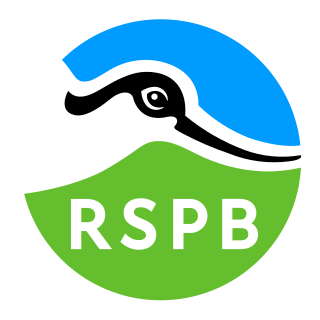Related Research Articles

English Heritage is a charity that manages over 400 historic monuments, buildings and places. These include prehistoric sites, medieval castles, Roman forts, and country houses.

The Wildlife Trusts, the trading name of the Royal Society of Wildlife Trusts, is an organisation made up of 46 local Wildlife Trusts in the United Kingdom, the Isle of Man and Alderney. The Wildlife Trusts, between them, look after more than 2,300 nature reserves, covering around 98,500 hectares. As of 2020, the Trusts have a combined membership of over 870,000 members.

The Royal Society for the Protection of Birds (RSPB) is a charitable organisation registered in England and Wales and in Scotland. It was founded in 1889. It works to promote conservation and protection of birds and the wider environment through public awareness campaigns, petitions and through the operation of nature reserves throughout the United Kingdom.
Derbyshire Wildlife Trust is one of 46 local Wildlife Trusts around the UK working to promote and protect local wildlife. It covers the whole of Derbyshire and was founded in 1962 in response to environmental threats to the local countryside, since when it has continued to grow. The trust is now based at East Mill on the River Derwent in the town of Belper, Derbyshire. It is a registered charity, supported by more than 14,000 members and over 500 volunteers.
Dorset Wildlife Trust (DWT) is a wildlife trust covering the county of Dorset, United Kingdom. The trust was founded in 1961 as Dorset Naturalists' Trust, to protect and conserve the wildlife and natural habitats of the county.
The Born Free Foundation is an international wildlife charity that campaigns to "Keep Wildlife in the Wild". It protects wild animals in their natural habitat, campaigns against the keeping of wild animals in captivity and rescues wild animals in need. It also promotes compassionate conservation, which takes into account the welfare of individual animals in conservation initiatives. Born Free also creates and provides educational materials and activities that reflect the charity's values.
An Taisce – The National Trust for Ireland, established on a provisional basis in September 1946, and incorporated as a company based on an “association not for profit” in June 1948, is a charitable non-governmental organisation (NGO) active in the areas of the environment and built heritage in the Republic of Ireland. It considers itself the oldest environmental and non-governmental organisation in the country, and is somewhat similar to the National Trust of England, Wales and Northern Ireland but based more directly on the National Trust for Scotland. Its first president was the prominent naturalist Robert Lloyd Praeger.
The Institute of Conservation(Icon) is the professional charitable body, representing and supporting the practice and profession of conservation. It has around 2500 members worldwide, including professional conservators, scientists and teachers involved with the care of heritage objects and buildings.

The Marine Conservation Society is a UK-based charitable organisation working with businesses, governments and communities to clean and protect oceans. Founded in 1978 as the Underwater Conservation Society, the group claims to be working towards "cleaner, better-protected, healthier UK seas where nature flourishes and people thrive." The charity also works in UK Overseas Territories.
Wildlife and Countryside Link (Link) is the largest environment and wildlife coalition in England, bringing together voluntary organisations in the UK to protect wildlife, restore landscapes and the marine environment, and improve access to nature.

The National Churches Trust, formerly the Historic Churches Preservation Trust, is a British registered charity whose aim is to "promote and support church buildings of historic, architectural and community value across the UK".
War Memorials Trust works for the protection and conservation of war memorials in the UK. The charity provides free information and advice as well as administering grant schemes for the repair and conservation of war memorials.

Peoples Trust for Endangered Species (PTES) is a charitable organisation registered in England and Wales. It exists to promote the conservation of rare or declining species and habitats in the UK and worldwide through monitoring, public engagement, education, and through the funding of conservation projects and research. It also owns and manages two nature reserves. As of April 2015, PTES has 16 employees, five trustees and coordinates around 24,000 volunteers in the UK. PTES relies on donations from the general public and grants from trusts and foundations to continue its work - it receives no core funding from the UK Government. The organisation has registered charity number 274206.
Pod Volunteer is a non-governmental volunteering organisation with an associated registered charity based in the United Kingdom.

The UK Overseas Territories Conservation Forum (UKOTCF), also known as Overseas Territories Conservation, is a UK-based non-governmental organisation which promotes coordinated conservation in the UK Overseas Territories and Crown Dependencies (UKOTs and CDs). It is a not-for-profit organisation supported by grants, donations and subscriptions, and a registered charity and company.
The British Art Medal Society (BAMS) was founded in 1982 to promote the art of the medal through commissions, exhibitions, publications and events. The society is affiliated to FIDEM.
References
- ↑ "THE MARSH CHRISTIAN TRUST, registered charity no. 284470". Charity Commission for England and Wales.
- ↑ "About". Marsh Charitable Trust. Retrieved 29 October 2022.
- ↑ "New Year Honours—United Kingdom" (PDF). The London Gazette . No. 57509. 30 December 2004. p. 12. Retrieved 29 October 2022.
- ↑ "MCT Public Name Change". Marsh Charitable Trust. 1 September 2021. Retrieved 29 October 2022.